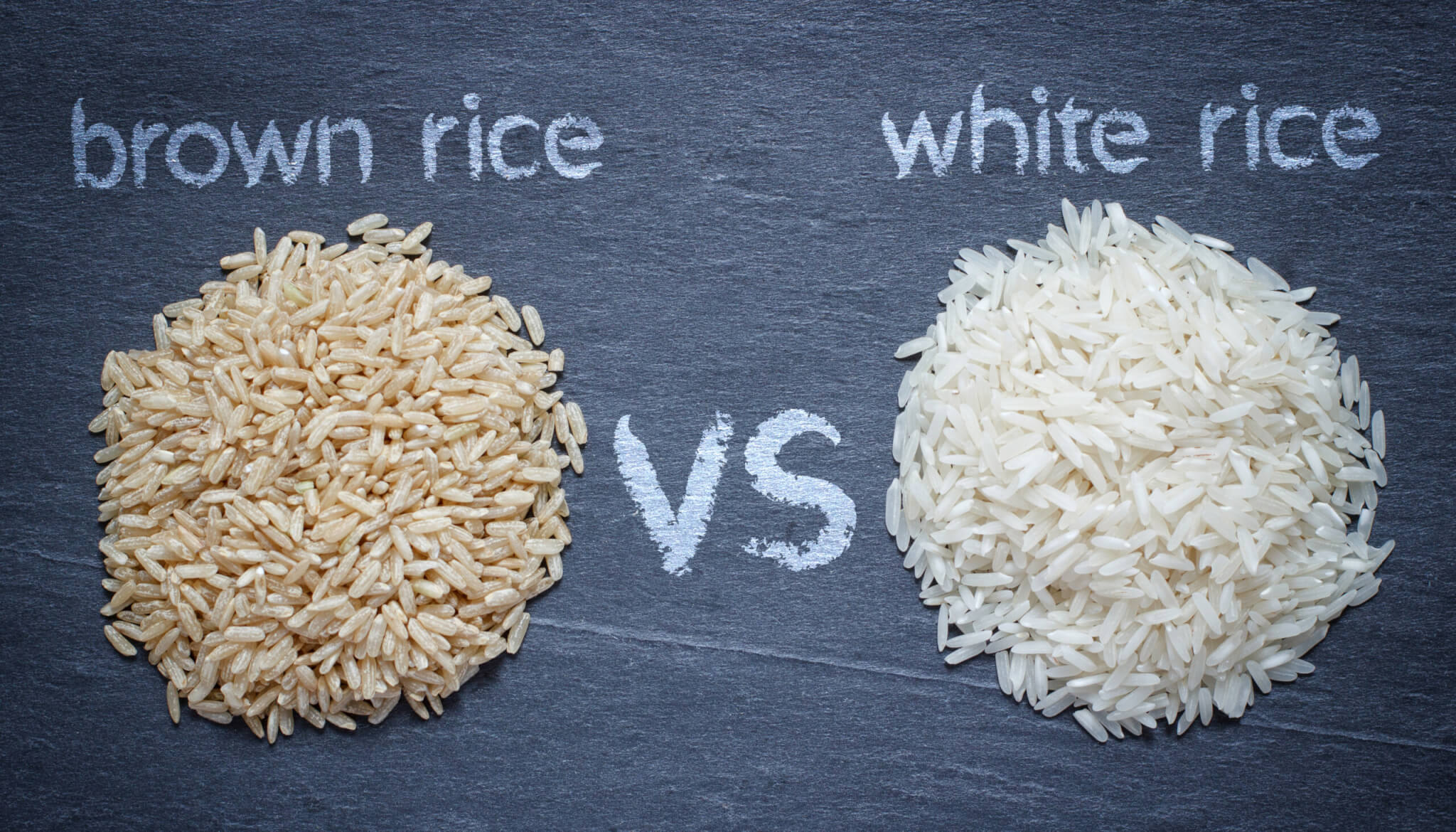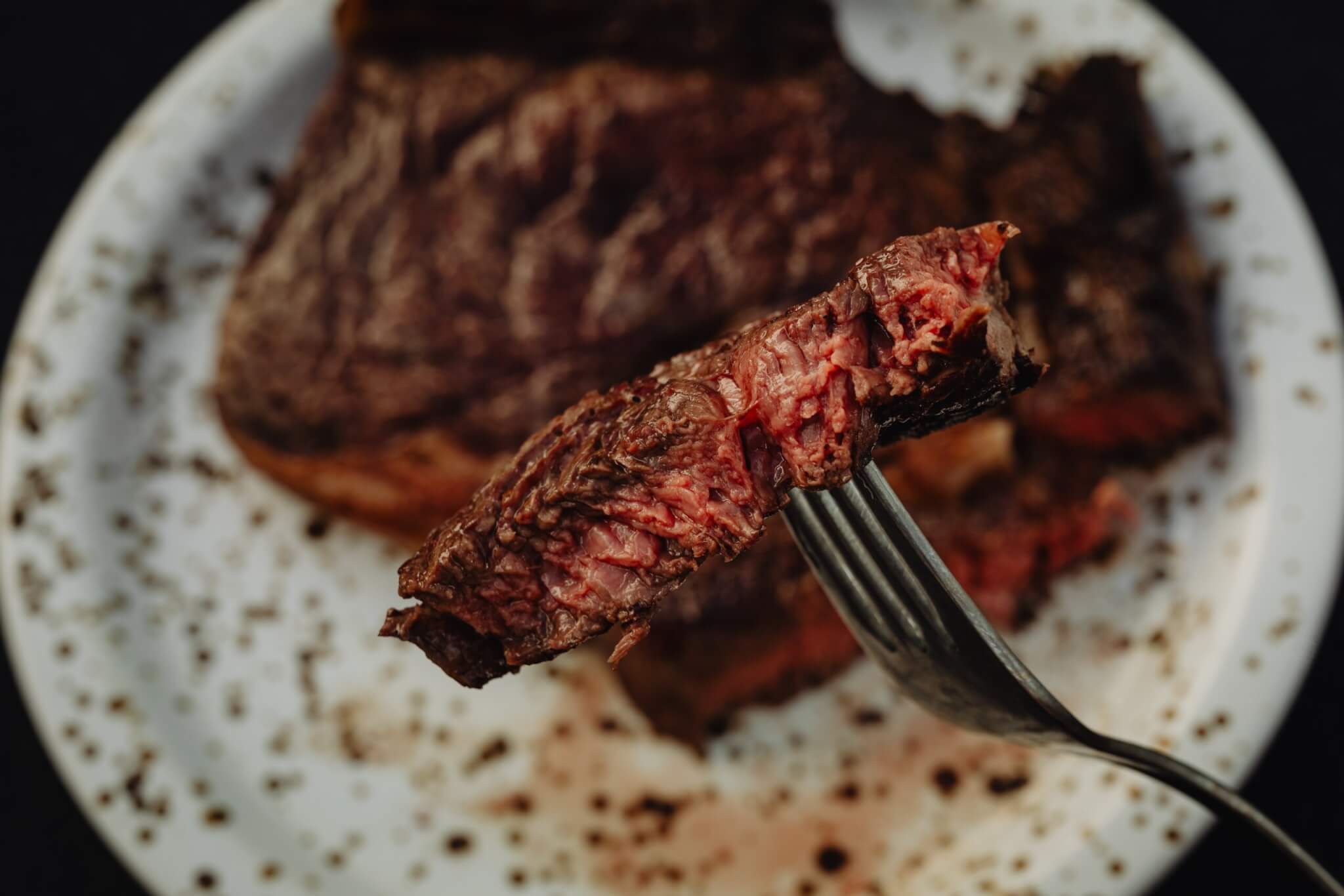Science never takes a break, and as the calendar turns to 2024, StudyFinds is looking back at the past year in research from around the globe. When it comes to food, researchers are constantly looking at what dishes are the best for your waistline and your overall well-being.
From coming up with healthier ways to cook meat to finding the perfect breakfast to extend lifespans, these studies often freshen up stale diets with healthy takes on nutrition. Here are the top five food-related studies of 2023:
No, brown rice is not healthier than white rice
In recent years, modern-day diet culture has continued to promote the idea that brown rice is healthier than white rice. So, is that really true? Registered dietitian Shyla Cadogan explains that brown rice has a slight edge over white rice, but it isn’t significant in the grand scheme of things.
On average, Cadogan explains that there is only about one gram of fiber per cup of brown rice, while there isn’t any in white rice. Recommended daily fiber intake is close to 25 grams, meaning brown rice isn’t making a significant difference in your fiber intake.
Additionally, arsenic, a heavy metal, is often found in much higher amounts in brown rice. In fact, it contains close to 80 percent more arsenic than white rice.
While brown rice may have more minerals than white rice, the dietitian notes that your body will not fully absorb them due to brown rice’s phytic acid content.

Why eating red meat and dairy could actually prevent cancer
Eating red meat and consuming dairy might aid in cancer prevention, a surprising study revealed. Researchers found that trans-vaccenic acid (TVA), a fatty acid in beef, lamb, and dairy, enhances the ability of immune cells to combat tumors.
This study also indicates that higher TVA levels in the blood correlate with better responses to immunotherapy, proposing TVA as a potential nutritional supplement to augment cancer treatments.
“After millions of years of evolution, there are only a couple hundred metabolites derived from food that end up circulating in the blood, so that means they could have some importance in our biology,” says Jing Chen, PhD, the Janet Davison Rowley Distinguished Service Professor of Medicine at UChicago and one of the senior authors of the study, in a media release.
“To see that a single nutrient like TVA has a very targeted mechanism on a targeted immune cell type, with a very profound physiological response at the whole organism level—I find that really amazing and intriguing.”

Whole milk or low-fat? A dietitian explains which dairy product is right for you
There’s endless discourse and debate about the health benefits (or lack thereof) of dairy milk. However, dietitian Shyla Cadogan notes that all varieties of dairy milk have health benefits. Whole, reduced fat, low fat, and skim all provide different boosts. So, what sets them all apart from each other?
The dietitian explains that, when it comes to drinking various forms of milk, fat isn’t an enemy. We actually need it for proper nutrition. Just as with anything else, however, people don’t need it in excess.
Unless you medically require a low-fat diet, Cadogan says there isn’t a “best milk” for health if you are otherwise eating a varied and healthy diet rich in all kinds of nutrients. Just know that the lower you go in fat, the less likely you are to absorb nutrients (like vitamin D) that need fat to metabolize correctly.

Sourdough may be the key to better gluten-free bread
Researchers from Penn State and Colorado State University may have found a dietary game changer for those living with Celiac or a related gluten intolerance. At the heart of this research lies sourdough bread. Why? Sourdough contains less gluten than other breads, making it more tolerable for people with gluten sensitivities.
Celiac disease, a chronic autoimmune disorder triggered by the consumption of gluten, can seriously limit one’s food options, both at home and especially while dining out. The research team is currently studying whether bacteria in the yeast starter needed to make sourdough bread might help reduce gluten across various other bread products.
A $500,000 grant provided by the U.S. Department of Agriculture will allow them to not only study if sourdough starter microbiomes can detoxify gluten in bread — making them safe for individuals with celiac disease — but also hopefully ascertain whether food scientists can manipulate them to boost both bread quality and safety.

4 cups of coffee or tea could be secret recipe for fighting frailty in old age
Regularly drinking tea or coffee during middle age could help people ward off frailty later in life, a recent study revealed. The research, conducted by a team at the National University of Singapore, involved over 12,000 participants between the ages of 45 and 74, spanning two decades. The key to these potential benefits, they suggest, is caffeine.
Those who consumed four cups of coffee daily experienced the most significant benefits, but consistent drinkers of black and green tea also saw advantages. Previous studies have found that caffeine can stimulate muscle cell proliferation and enhance muscle weight in mice. Beyond caffeine, both coffee and tea are abundant in bioactive polyphenols, known for their antioxidant and anti-inflammatory properties. These compounds have been linked to reduced risks of diseases that exacerbate frailty, including diabetes, cardiovascular issues, obesity, and neurodegenerative disorders.

